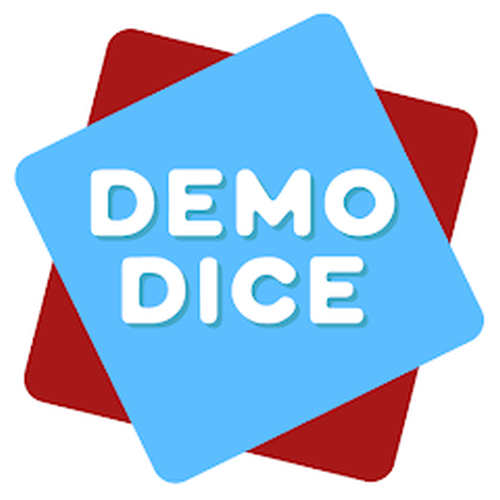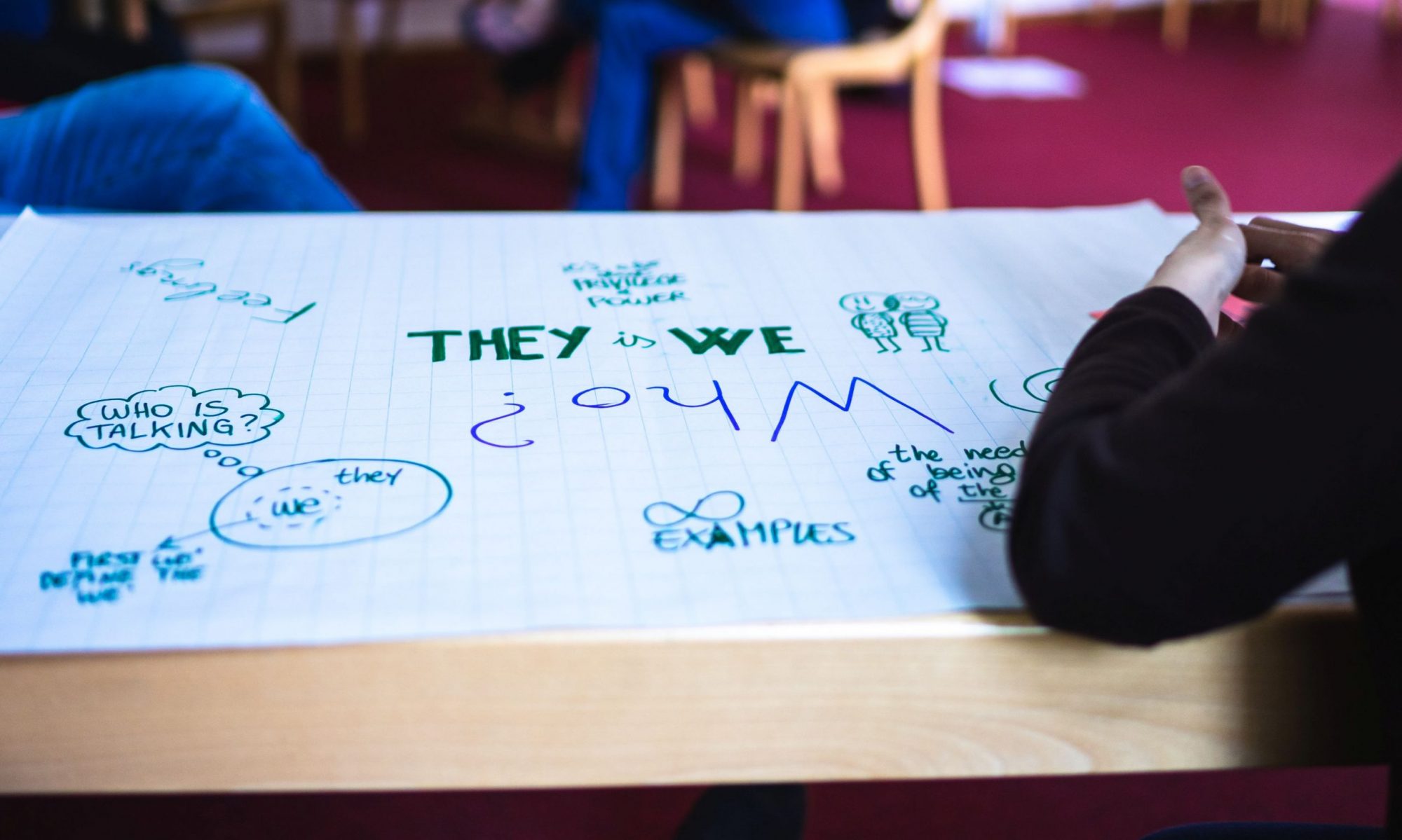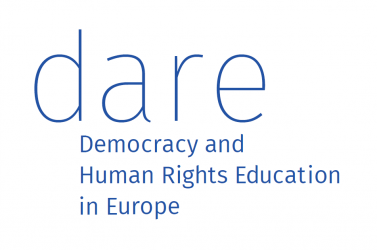Storytelling and Democracy learning combined in a dice game – how does that work? After 2 years of intense brainwork testing we can assure: storytelling and dice games work pretty well for learning Democracy. Together with Amanda Warner and the game developers team from our Erasmus + project DemoGames – the Democracy Learning Box we are proud to present DemoDice.

Dice-based storytelling
From 1 to 10 players reflect and exchange their experience with democracy, as well as their desires and ideas for a more democratic future. The standard set includes 9 dice with six symbols each.
- Three dices on democracy as a political system (participation, rule of law, basic/human rights),
- Three dices on individuals and interactions (actors, emotions, power relations),
- Three dice on contextual factors (social policy areas, places, challenges and threats to democracy).
- Special dice are available on sustainability and the pandemic.
The game can be played with or without more detailed information about the symbols and its various meanings.
Test it:

Install Apple Store | Google Play Store
The free and non-commercial app DemoDice is based on the analogue DemoDice game, which has been developed by DARE member demokrative.
How to play Read the rulebook
Background
The analogue and digital games developed in DemoGames are developed along the Council of Europes “Reference Framework on Competencies for Democratic Culture”. They help placing the reference framework conceptually and practically with both feet on the ground of learning settings.
In last blog entry about DEMOGAMES we started introducing the work done to design Deckmocracy from learning objectives, through the game dynamics and layout, to the final education process. Today we will see the same process for one of the final project outcomes coordinated by DARE Network: The creation of Digital games.
Once we started the design process of DEMOGAMES games we had a question regarding which would our digital games be. It was soon when the first specific ideas came up that we understood that we could make a digital version of our games in order to reach out to more learners, playtest during COVID times and simplify, cutting expenses, the distribution of the game.
DemoDice was the first of these games to come to life. It was also an easy game to imagine digital, as similar games exist, so our focus was not only to make a fun and playable game, but also to ensure it was unique and targeted to understanding the democracy dimension of it.
As the digital programming was happening, the analog playtesting was giving shape to the game itself. How many dice? What concepts to include? How to distribute them? Which icons to use? These were questions that we asked our players and colleagues. They provided answers that supported the shaping of the first prototype and the shift into what to keep or change, and how to show it towards the final version.
With the first dice version, we had the opportunity to start playing with the digital game and see the users engagement and reactions.
- DemoDice is an abstract game, while the concepts also fit into our EDC curriculum. How can players better understand the meaning behind our symbols? This was a process with many different proposals by the team and testers. Finally, we decided to have a simple and inclusive approach on screen for fast referencing.
- A dice game is all about dice rolling. Afterwards you can play in many ways, but the dice rolling feeling needs to be there. With DemoDice we tried different animations, physics and sounds until we were satisfied. Then we faced a new problem, how not to extra roll when we were already storytelling, and needed to find a way to also lock dice to avoid unexpected rolling in the middle of the story.
- Setting up the game requires planning and for the facilitator to design the best learning process for the players. With DemoDice app we wanted to keep this process simple and this way the main screen allows in very few taps to decide which dice to use.
Many of these design processes also supported the quality of the analog version of the DemoDice, making both processes feed each other and reach outcomes way more positive than if we had only done one of the two versions.
Design processes for the digital and analog game based learning formats follow parallel but very different paths from the perspectives of user, interaction and experience. Having the opportunity to shape both processes was a sound learning process about learning design. We learned that there is way more than simple adaptations of games to the digital environment, as gamifying a learning process is more than bringing theory into a new method. And now we look forward to seeing learners across Europe play our digital games. Who knows, maybe this is a path for DARE Network to continue!
The project DEMOGAMES – Democracy and Games: Analog and Digital Game-Based Learning Tools for Youth Work (2019-2-DE04-KA205-018330) is a fun do-it-yourself project formed by an international consortium coordinated by GIGA (German Institute of Global and Area Studies), and including DARE Network, its members Demokrative (Swiss DARE Member), Intercultural Institute Timisoara (Romanian DARE Member) and Culture Goes Europe Erfurt (German DARE Member) and the Spanish game designers organization DA2 Trucados.
(by Ramon Martinez)

